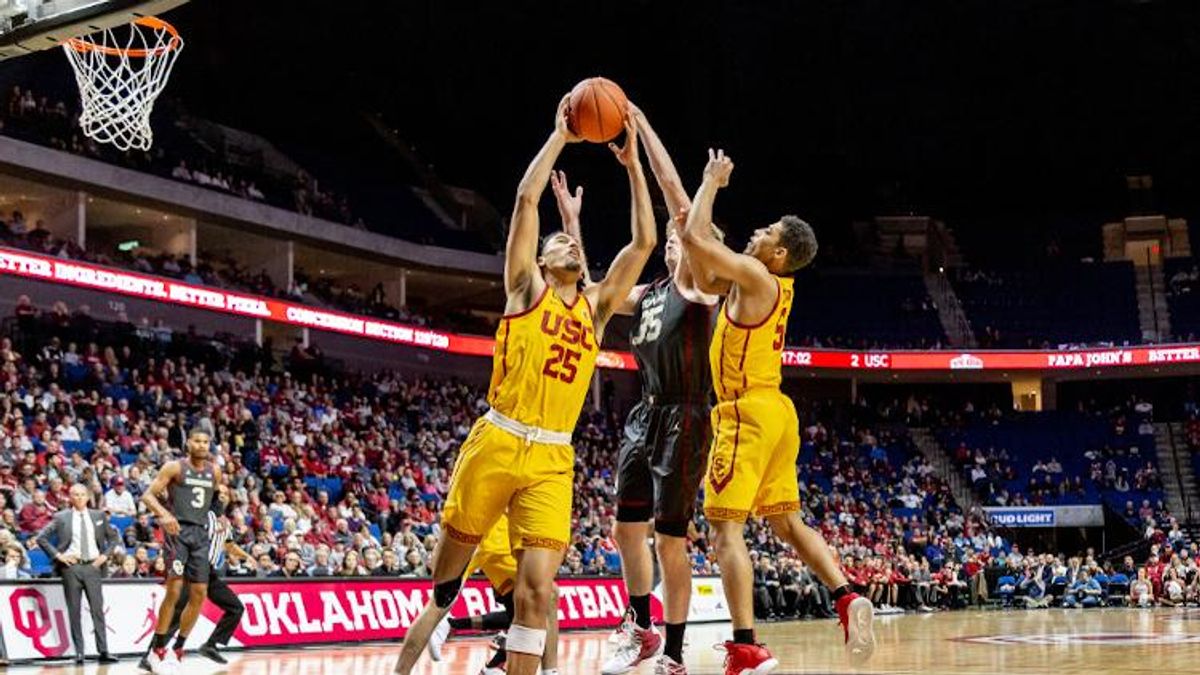Transgender
States With Anti-Trans Laws Might Not Get to Host NCAA Championships

Via Shutterstock
The NCAA issued a warning on the matter Monday.
April 12 2021 8:35 PM EST
May 31 2023 5:04 PM EST
trudestress
By continuing to use our site, you agree to our Private Policy and Terms of Use.

The NCAA issued a warning on the matter Monday.
The National Collegiate Athletic Association has issued a warning to states enacting or considering laws barring transgender athletes from competing under their gender identity -- these locations may not get to host NCAA championships.
"The NCAA Board of Governors firmly and unequivocally supports the opportunity for transgender student-athletes to compete in college sports," reads a statement released Monday afternoon. "This commitment is grounded in our values of inclusion and fair competition.
"The NCAA has a long-standing policy that provides a more inclusive path for transgender participation in college sports. Our approach -- which requires testosterone suppression treatment for transgender women to compete in women's sports -- embraces the evolving science on this issue and is anchored in participation policies of both the International Olympic Committee and the U.S. Olympic and Paralympic Committee. Inclusion and fairness can coexist for all student-athletes, including transgender athletes, at all levels of sport. Our clear expectation as the Association's top governing body is that all student-athletes will be treated with dignity and respect. We are committed to ensuring that NCAA championships are open for all who earn the right to compete in them.
"When determining where championships are held, NCAA policy directs that only locations where hosts can commit to providing an environment that is safe, healthy and free of discrimination should be selected. We will continue to closely monitor these situations to determine whether NCAA championships can be conducted in ways that are welcoming and respectful of all participants."
The NCAA pulled seven championship events from North Carolina after it passed the infamous anti-LGBTQ+ House Bill 2 in 2016. HB 2 restricted trans people's use of restrooms in government buildings and kept cities and counties from enacting or enforcing civil rights laws protecting LGBTQ+ people from discrimination. Most provisions of HB 2 have now been repealed.
So far this year, trans-exclusionary sports bills have been signed into law in Arkansas, Mississippi, and Tennessee. The Arkansas and Mississippi legislation covers state colleges and universities as well as public schools, while Tennessee's measure covers only middle and high schools. Idaho last year passed a trans-exclusionary law affecting school sports at all levels, but it has been blocked by a federal judge while a lawsuit against it is heard.
In South Dakota, Gov. Kristi Noem issued anti-trans executive orders covering all educational levels and announced she's forming a national coalition to take on the NCAA.
West Virginia will likely be the next state to put such a law in place. Last week the state's Senate and House of Delegates reconciled differing versions of a bill, with the outcome being that the ban will apply to public colleges and universities in addition to middle and high schools. Gov. Jim Justice said over the weekend that he will either sign the bill or let it become law without his signature.
And bills are pending in Louisiana, whose largest city, New Orleans, is set to host the final four in the NCAA men's basketball tournament in 2022. "Legislating away the rights and freedoms of trans people is harmful not just to the trans community, but to the entire state," said a statement from Dylan Waguespack, president of Louisiana Trans Advocates. "Our reputation is on the line, and the four anti-trans bills pending hearing at the Louisiana State Legislature could deal a massive blow to the tourism and convention business. When our economy suffers, it's everyday families whose wallets get hit."
The NCAA has long been advocated for LGBTQ+ equality in sports, and it has joined business leaders and others in condemning this year's record spate of anti-trans legislation. Civil rights groups praised the NCAA's latest action.
"State lawmakers around the country should pay attention: Discriminating against transgender students is wrong, against the law, and costly," said a statement from Chase Strangio, deputy director for trans justice at the American Civil Liberties Union. "If you continue to pass these misguided laws state taxpayers risk not only costly litigation but the loss of revenue from these tournaments."
GLAAD President and CEO Sarah Kate Ellis issued the following statement: "The NCAA is following its own guidelines and demands from hundreds of college student-athletes insisting on fairness and inclusion for transgender participation. Every state debating and passing these discriminatory bills is doing untold damage to young people and to the states' economies and reputations. The message is loud and clear: These bans are wrong. Choose inclusion. Everyone wins."